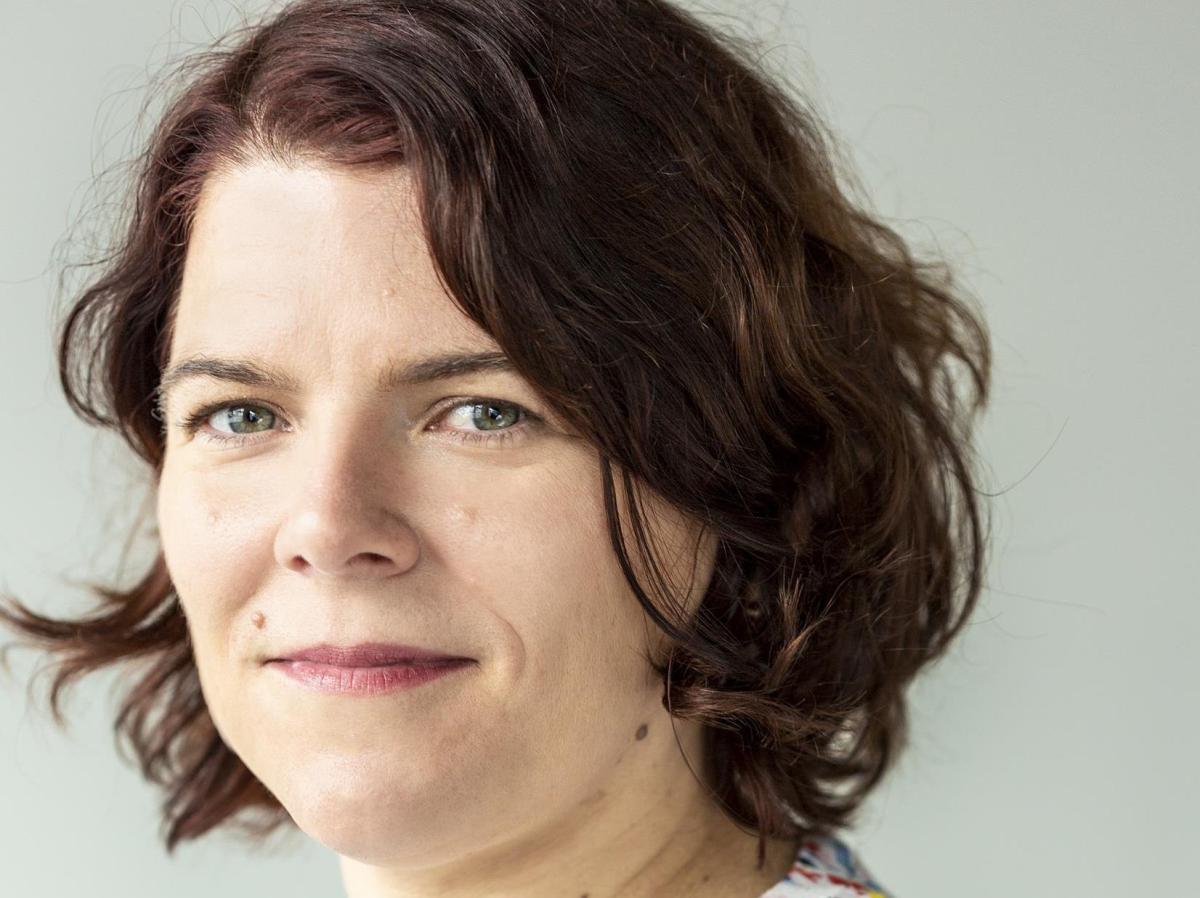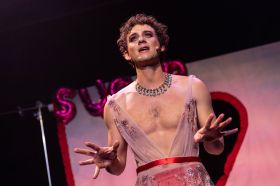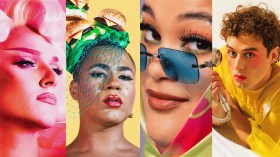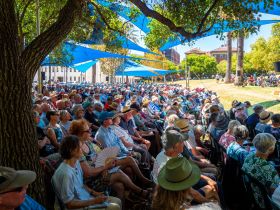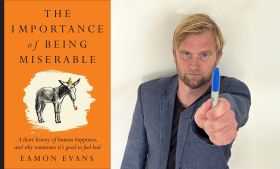Producer Erin Milne; photo by Pia Johnson.
‘What do producers actually do, how do I know if I need one, how do I pay one, how do they work with you, how do I find one – and can I just be a self-producing artist and forget about all these questions?’
– Every Artist Who Has Ever Been Told They Need a Producer
The term ‘producer’ has become a bit of a catch-all for a whole range of tasks, responsibilities, experiences and outcomes. Many artists are told they need a producer, or perhaps have only a vague sense of how working with a producer might benefit them. This can make it very difficult to understand where to begin in finding a producer, let alone what questions to ask and how to know you’ve found the right person for you and your work.
Many independent artists find that working with a producer can help to build capacity, increase sustainability, share the load and increase the impact of your work.
What do producers do?
This is a loose description of some of the places you will find producers, and the roles they can play – by no means definitive!
Venue or festival producers
Producers inside organisations liaise with the external artist or company, help to deliver the project, and can play a vital role in navigating the organisational side of things. These producers can also be called ‘program managers’ or similar titles. They work across multiple projects at one time that are happening in the venue or festival.
Independent producers
Independent producers essentially run their own businesses, working with multiple artists and groups. These producers work in a range of ways, including long-term collaborations with artists over a number of projects and years; as well as working on shorter-term projects and one-off events. For the most part, independent producers receive little or no funding support, and are paid directly by artists, from project budgets, or take a percentage of profits, for their work.
Company producers
Company producers work with one artist or group, usually in the small-to-medium sector, with titles like ‘executive producer’ (top-level responsibility) and ‘associate producer’ (reporting to the executive producer).
Both independent and company producers do a range of tasks including planning, budgeting, fundraising, strategic and creative input, project management, networking, market development, tour management, and so on.
Before you meet
Before meeting with a potential producer, write a list of things you imagine a producer could help you with, as well as a sense of the goals you have for your project or practice. Research the producer’s website (if they have one) and ask around for any feedback from colleagues who’ve worked with that person. Prepare some brief information on your own practice, so that when you contact a producer you can supply them with information on who you are, what you do, what the project is, and where it’s currently at.
Questions to ask a potential producer
- Have you seen any of my work?
- How do you describe your role as a producer, and how do you like to work with artists?
- Why do you work as a producer?
- What other projects and artists are you working with at the moment?
- What do you know about… (e.g. specific art form, practice, etc)?
- How do you manage working on multiple projects – if there’s a calendar clash between two projects how would you negotiate that?
- What do you do if there’s a conflict of interest between two projects you’re working on, e.g. if two artists are both pitching work to the same festival?
- How do you charge for your services? Flat fee? Hourly? Percentage of project budget?
- Do you see yourself having a creative role or ownership in the project?
- Are you experienced in managing budgets and do you expect to do this in partnership with me?
- Do you do grant writing as an additional service or as part of your role as producer?
- Who will take the financial and legal risk and responsibility for this project?
- Describe your networks – who are you connected with, and how could we use our combined networks to achieve the goals of this project?
- Where could you see this project going?
- What do you think is missing from this project?
- What else do you need to know to consider working with me?
Next steps
Finding the right collaborator is really important, and if the fit isn’t right then don’t jump into engaging someone. Ask for more information, or perhaps engage a producer on a smaller piece of work as a way of testing the water (e.g. having a two hour strategy and advice session, or working on a one-off small project).
If the fit is right, your first collaboration should be to agree on some goals and tasks for the project as well as a clear understanding of your financial relationship. Put this into a straightforward letter of agreement (it doesn’t have to be complex!) with information on any key dates, expectations and payments.
Many independent artists find that working with a producer can offer a deep sense of support and partnership – having someone to walk with them on the road between an idea and its realisation. Don’t hesitate to take your time, and ask every question that’s on your mind. An independent producer will be happy to have that conversation with you.
(And yes, you can just be a self-producing artist and forget about all these questions!)
By Erin Milne (Bureau of Works) for Theatre Network Australia

